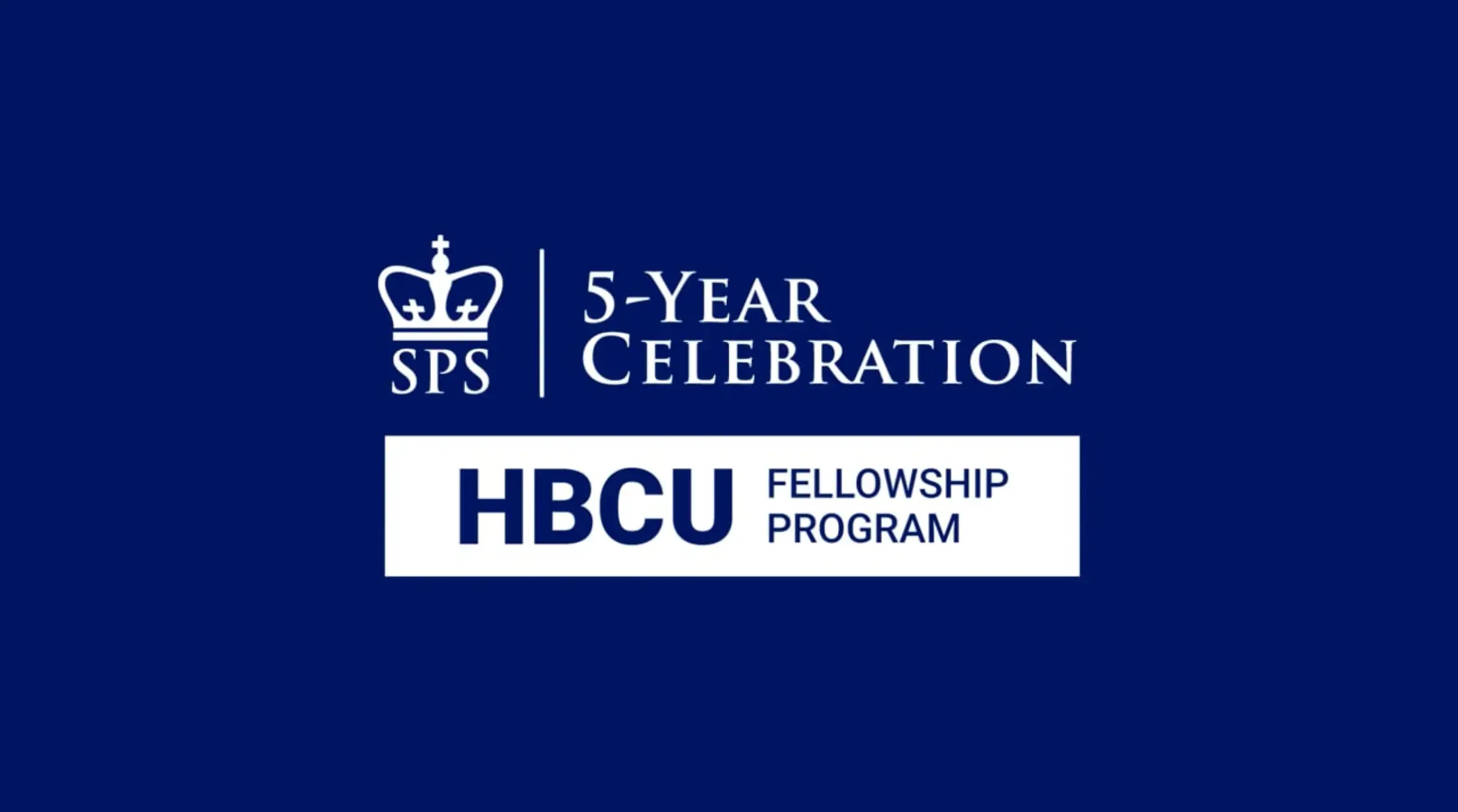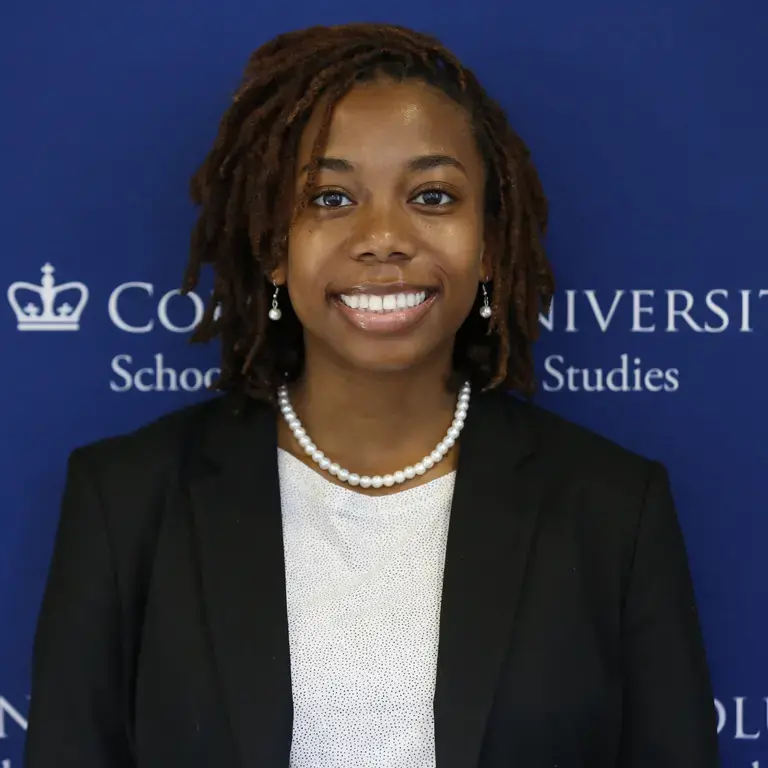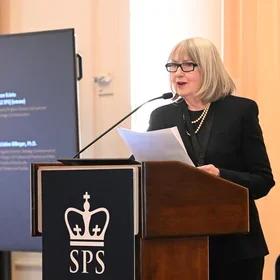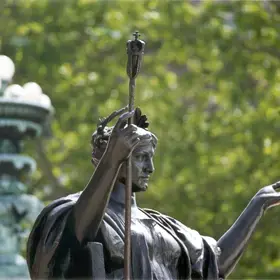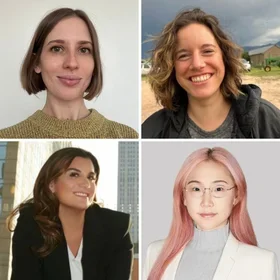By Nia Anyike, ’22SPS, Strategic Communication, 2021 HBCU Fellow
On November 4, the School of Professional Studies celebrated five years of its innovative Columbia HBCU Fellowship Program in the Low Library Rotunda. Since its inception in 2017, the program has prepared 108 talented, high-performing Historically Black College and University (HBCU) graduates to lead, innovate, drive community impact, and advance their professional industries through program engagement, mentorship, and career development opportunities. The prestigious fellowship is the Ivy League’s first formal full-tuition graduate fellowship program for alumni of HBCUs. In addition, fellows receive on-campus housing, a stipend, and community engagement and career development programming.
Faculty, staff, and fellows and their family and friends convened in the historic library over dinner, remarks, and dancing to celebrate the individual and collective accomplishments of the program. The fellows represent more than twenty HBCUs, including Lincoln University, Spelman College, and Tuskegee University.
The evening celebration commenced with remarks by Zelon Crawford (’96TC), the senior associate dean of student affairs. Dean Crawford, who previously served as dean of students at Columbia Business School, has played a pivotal role in leading the Columbia HBCU Fellowship Program since joining Columbia SPS in 2020. “It has been my privilege to steer this program,” she shared in her remarks. “I have learned so much from our students, and I am inspired as I watch our vibrant fellowship network continue to grow.”
Amyre Brandom-Skinner (’22SPS, Negotiation and Conflict Resolution), a 2021 Columbia HBCU Fellow and graduate of Xavier University of Louisiana, spoke on behalf of the fellows at the celebration. She reflected on the unique impact of both her Columbia and HBCU experiences, highlighting the rich array of community service and bonding activities among the fellows. “The Columbia HBCU Fellowship Program has opened doors to rooms that I never may have been able to enter on my own. This experience as a Columbia HBCU Fellow has come along with challenges—good challenges that have built my character and readiness for the next phase of my career,” she shared in her remarks to introduce Columbia SPS dean Troy Eggers.
Dean Eggers shared his vision for the program as it continues to grow in the future: “We have ambitious plans to prepare even more HBCU graduates to lead, innovate, and drive community impact across industries. We will continue to welcome bold new ideas and innovations, and invite new partners to join us in the effort.”
Olger C. Twyner, Columbia’s executive director of community impact and a Jackson State University alumnus, delivered the keynote address. Drawing upon his perspective as an HBCU alumnus, Twyner illustrated the deep significance of community at both HBCUs and Columbia University alike.
Over the past five years, the Columbia HBCU Fellowship has developed into a collective of esteemed HBCU graduates whose due diligence has led them to succeed in their careers and professional journeys. Fellows have consistently said that being a part of this prestigious community was the most rewarding of their Columbia experience. Notable fellows include Damian James Murray (’21SPS, Technology Management), who was awarded the prestigious Schwarzman Scholarship to study in Beijing; Shami-Iyabo Mitchell (’20SPS, Bioethics), who was accepted to six medical schools; and Hezekiah Williams (’22SPS, Sustainability Management), who is now earning a mechanical engineering Ph.D. from the University of Notre Dame and received the Campbell Award from the Columbia University trustees and the Columbia Alumni Association board for his exceptional leadership and Columbia spirit. Other graduates have secured full-time positions at Deloitte, Goldman Sachs, the NBA, and the Walt Disney Studios.
HBCUs are accredited higher education institutions that were founded with the principal mission of providing access to undergraduate and graduate education to Black students. HBCUs were established in the early 19th century when Black students were unwelcome at many existing public and private higher education institutions. Fellows from cohorts one through six of the Columbia HBCU Fellowship are no strangers to success, as they have become movers and shakers in their Columbia and HBCU communities.
